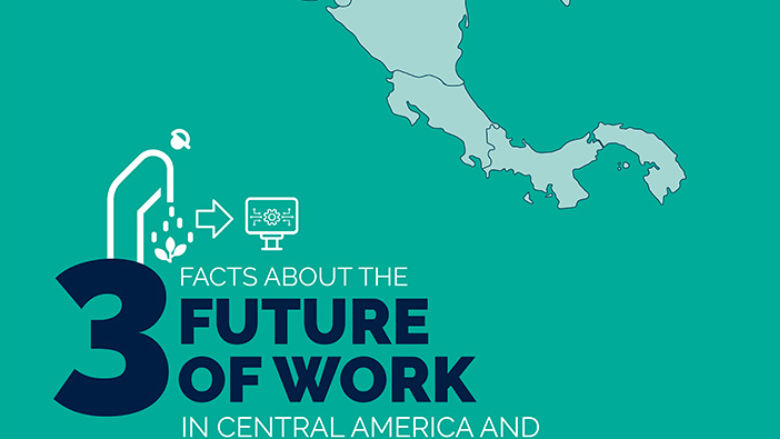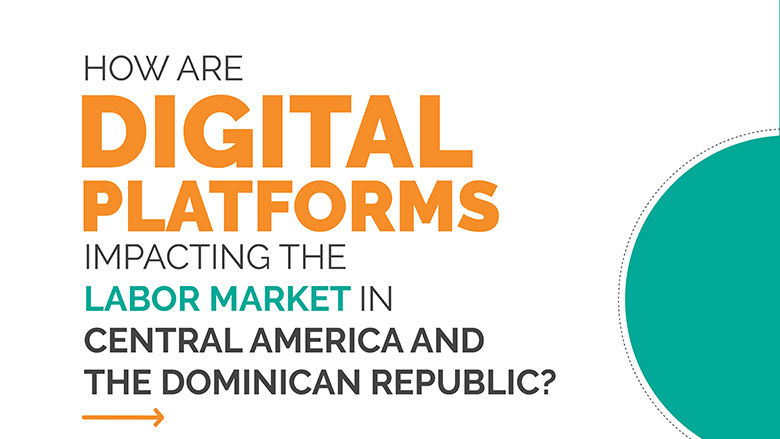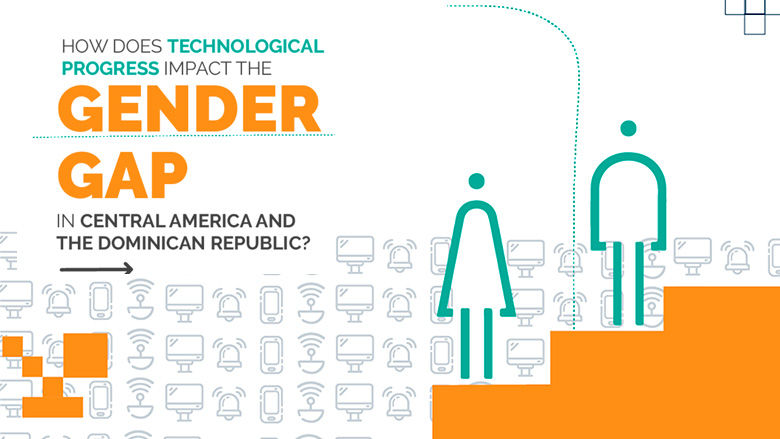Technological progress has the potential to cause significant disruption in labor markets, but also to create new job opportunities for people in Central America and the Dominican Republic. Advances in agricultural and industrial machinery, computers, and now artificial intelligence (AI) have enabled machines to undertake many tasks previously done by humans, which puts jobs at risk.
Far from being a purely destructive force, technological progress and automation can generate employment. In competitive environments, automation can create jobs as price declines linked to productivity improvements create higher demand. Information and communication technology (ICT) can facilitate new working arrangements that are beneficial for workers and firms.
Indeed, the transition of Central American countries and the Dominican Republic (CADR), to the future of work has been only partial, despite the existence of the technology to automate many tasks and to enable remote and platform work. Employment is evolving towards the nonroutine tasks associated with the future of work in CADR, but the routine ones associated with the past still dominate. Remote work surged during the pandemic but now seems to be diminishing. Platform work is present but makes up a small share of total jobs in some countries. In sum, while many workers in the region seem to be at risk of losing their jobs to machines, a number of factors related to employment structure, skills, the use of technology, and globalization mean that this risk has not materialized and is unlikely to do so in the near term.
The challenge for policymakers in the region is to balance policies that enable technological progress and the benefits it brings with policies that mitigate the effects of any ensuing disruptions. From a labor market perspective, two priorities emerge to take advantage of the benefits of technological progress while mitigating the downsides. First, pathways for developing skills complementary to new technologies will be essential. Second, social protection and labor market policies will need to be adapted to new working arrangements on one hand, and to the disruptions associated with technological progress on the other.



